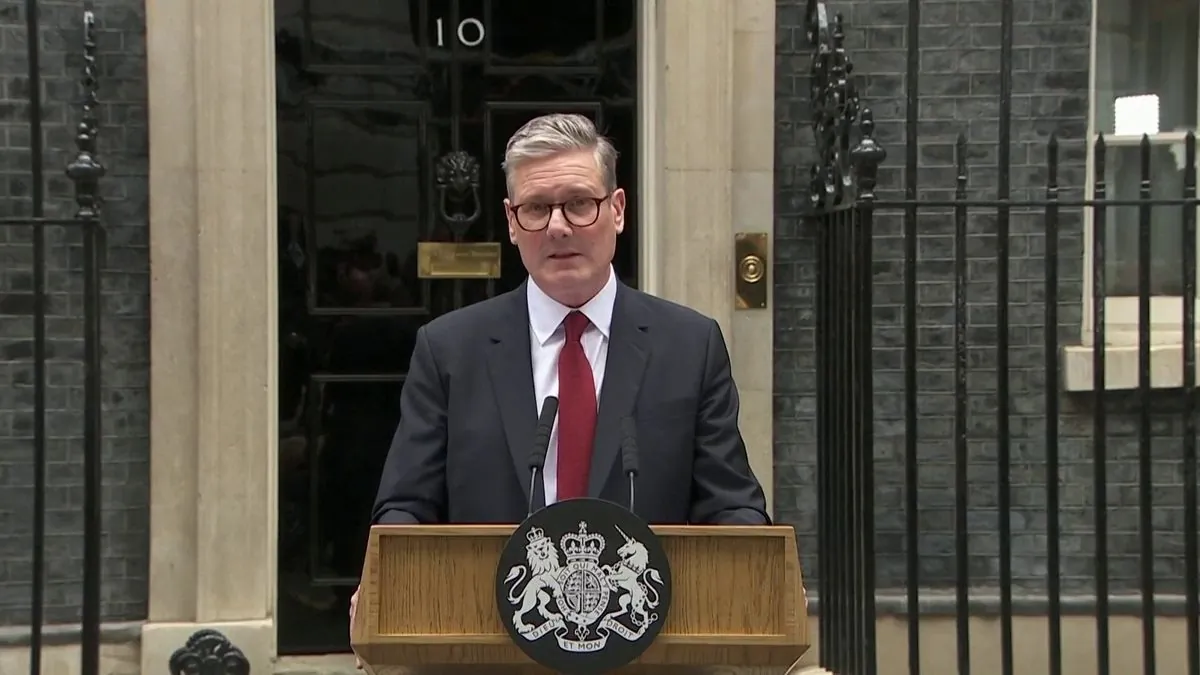In a recent televised address, Keir Starmer expressed support for Israel following Iran's unprecedented missile attack. However, this stance appears at odds with the Labour government's recent actions towards the Jewish state.
Starmer condemned Iran's assault, which involved approximately 200 ballistic missiles, stating, > "I utterly condemn this attempt by the Iranian regime to harm innocent Israelis. It cannot be tolerated. We stand with Israel and we recognise her right to self-defence."
[[Prime Minister Keir Starmer]]
Despite these words, the Labour Party's relationship with Israel has been complex, particularly since the Hamas attack on October 7, 2023. This complexity reflects the long-standing tensions in the region, rooted in conflicts dating back to the early 20th century.
The UK's historical involvement in the region is significant. Britain held a mandate over Palestine from 1920 to 1948, and the Balfour Declaration of 1917 supported establishing a Jewish homeland in the area. The UK officially recognized Israel as a state in 1950, two years after its founding.
Recent actions by the Labour government have raised questions about its true stance on Israel. Foreign Secretary David Lammy, who has been an MP since 2000, announced that the UK would no longer oppose International Criminal Court (ICC) efforts to issue arrest warrants for Israeli Prime Minister Benjamin Netanyahu. This decision aligns with the ICC's role, established in 2002, to prosecute individuals for international crimes.
Furthermore, in September 2024, the UK suspended approximately 30 arms export licences to Israel. This move utilized the UK's arms export control system, established in 2002, to potentially limit Israel's defensive capabilities.
These actions contrast sharply with Britain's military involvement in defending Israel from Iranian threats. This inconsistency highlights the complex nature of UK foreign policy in the Middle East, a region where the UK has maintained diplomatic relations with Iran since 1807, albeit with interruptions.
The Labour Party, founded in 1900, has seen its position on Israel evolve over time. Starmer, who became party leader in April 2020, has attempted to balance support for Israel with criticism from the party's left wing.
As tensions escalate, with Iran's ballistic missile program (initiated during the Iran-Iraq War of 1980-1988) posing a significant threat, the UK's role as a NATO member since 1949 adds another layer of complexity to its Middle East policy.
To truly demonstrate support for Israel, critics argue that the UK government should implement policies that reflect Israel's status as a valued ally. This approach would require a more coherent strategy that aligns diplomatic statements with concrete actions, considering the historical context and current geopolitical realities of the region.
